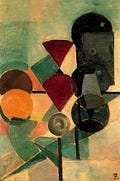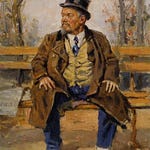Welcome to Sundays with Seneca on the Perennial Meditations podcast. Join the search for ancient lessons for modern life in the writing and Stoic philosophy of Lucius Annaeus Seneca.
In a letter known today as On the Futuility of Learning Maxims, Seneca wrote,
You wish me to close these letters also, as I closed my former letters, with certain utterances taken from the chiefs of our school. But they did not interest themselves in choice extracts; the whole texture of their work is full of strength. There is unevenness, you know, when some objects rise conspicuous above others. A single tree is not remarkable if the whole forest rises to the same height.
Poetry is crammed with utterances of this sort, and so is history. For this reason I would not have you think that these utterances belong to Epicurus. They are common property and are emphatically our own. […]
Therefore, you need not call upon me for extracts and quotations; such thoughts as one may extract here and there in the works of other philosophers run through the whole body of our writings. Hence we have no “show-window goods,” nor do we deceive the purchaser in such a way that, if he enters our shop, he will find nothing except that which is displayed in the window. We allow the purchasers themselves to get their samples from anywhere they please.
Suppose we should desire to sort out each separate motto from the general stock; to whom shall we credit them? To Zeno, Cleanthes, or Chrysippus? We Stoics are not subjects of a ruler: each of us lays claim to his own freedom. … We cannot, I maintain, no matter how we try, pick out anything from so great a multitude of things equally good.
Only the poor man counts his flock.
Wherever you direct your gaze, you will meet with something that might stand out from the rest, if the context in which you read it were not equally notable.
For this reason, give over hoping that you can skim, by means of epitomes, the wisdom of distinguished men. Look into their wisdom as a whole; study it as a whole. They are working out a plan and weaving together, line upon line, a masterpiece, from which nothing can be taken away without injury to the whole. Examine the separate parts, if you like, provided you examine them as parts of the man himself.
If you insist, however, I shall not be sparingly with you, but lavish; for there is a huge multitude of these passages; they are scattered about in profusion—they do not need to be gathered together, but merely to be picked up. They do not drip forth occasionally; they flow continuously. They are unbroken and are closely connected. Doubtless they would be of much benefit to those who are still novices and worshipping outside the shrine; for single maxims sink in more easily when they are marked off and bounded like a line of verse. […]
What then? Shall I not follow in the footsteps of my predecessors? I shall indeed use the old road, but if I find one that makes a shorter cut and is smoother to travel, I shall open the new road. Men who have made these discoveries before us are not our masters, but our guides. Truth lies open for all; it has not yet been monopolized. And there is plenty of it left even for posterity to discover. Farewell.
—
Thank you for listening; I hope you found something useful.
Until next time, be wise be well,
















Seneca | On Learning Maxims